#CRM Software for Human Resources
Explore tagged Tumblr posts
Text

https://flowrocket.com/people-culture
Attendance Tracking Software, Cloud-Based HRMS & CRM for HR in the USA | FlowRocket
0 notes
Text
#technews#Enterprise Resource Planning (ERP)#ERP Solutions#Business Management Software#Integrated Business Applications#Supply Chain Management#Customer Relationship Management (CRM)#Financial Management Systems#Human Resources Management#Inventory Management Software#Manufacturing Resource Planning#Cloud ERP Solutions#On-Premise ERP Systems#ERP Implementation Services#ERP Consulting#ERP Software for Small Business#ERP Software for Manufacturing#ERP System Integration#ERP Software Development#ERP Customization Services#ERP Training and Support
0 notes
Text
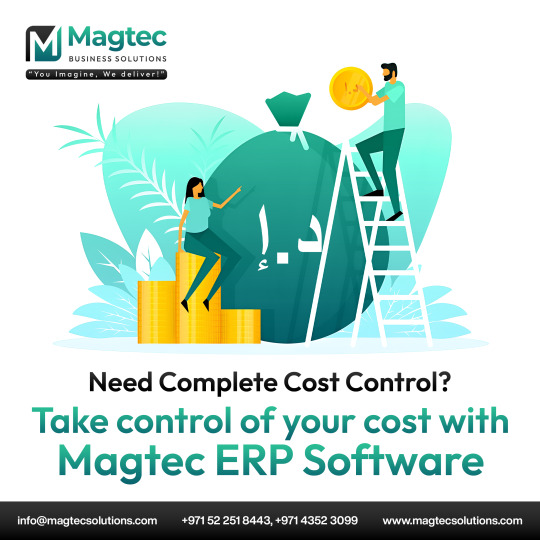
Need complete cost control? 💰 Take control of your business expenses with Magtec ERP Software. 📊 Our software helps you streamline processes and optimize costs, ensuring your business runs smoothly. 💼 Contact us today to learn more!
#magtec#magtecerp#magtecsolutions#erp#erpsoftware#enterprise#resource#planning#business#management#software#technology#innovation#solution#automation#efficiency#productivity#finance#accounting#supplychain#inventory#sales#marketing#customer#relationship#crm#human#resources#hr#payroll
0 notes
Text
Understanding NetSuite Pricing: A Comprehensive Guide
NetSuite is a popular cloud-based enterprise resource planning (ERP) software that assists growing businesses in managing their processes, including finance, inventory, order management, and more. If you are contemplating NetSuite, you should know about the NetSuite ecommerce pricing options before you start.
More than 36,000 enterprises benefit from NetSuite’s all-in-one cloud business management solution, which automates key business procedures and gives real-time insight into financial and operational performance. NetSuite provides businesses with a single, integrated suite of apps for order processing, managing accounting, manufacturing, inventory management, supply chain, and warehouse operations.
Read More:
#netsuite#erp systems#erp implementation#erpsoftware#erp software uae#erp#software#salesforce#crm#erp solution bd#automation#sapconsultant#sapporo#management system#finance#human resources#salary#working#machine learning#technology#saas technology#saas software#saasmarketing#b2b saas#saas#bigdata#businessstrategy#analytics#dataanalytics#businessintelligence
0 notes
Text
Role of AI and Automation in Modern CRM Software
Modern CRM systems are no longer just about storing contact information. Today, businesses expect their CRM to predict behavior, streamline communication, and drive efficiency — and that’s exactly what AI and automation bring to the table.

Here’s how AI and automation are transforming the CRM landscape:
1. Predictive Lead Scoring
Uses historical customer data to rank leads by conversion probability
Prioritizes outreach efforts based on buying signals
Reduces time spent on low-potential leads
Improves sales team performance and ROI
2. Smart Sales Forecasting
Analyzes trends, seasonality, and deal history to forecast revenue
Updates projections in real-time based on new data
Helps sales managers set realistic targets and resource plans
Supports dynamic pipeline adjustments
3. Automated Customer Support
AI-powered chatbots handle FAQs and common issues 24/7
Sentiment analysis flags negative interactions for human follow-up
Automated ticket routing ensures faster resolution
Reduces support workload and boosts satisfaction
4. Personalized Customer Journeys
Machine learning tailors emails, offers, and messages per user behavior
Automation triggers based on milestones or inactivity
Custom workflows guide users through onboarding, upgrades, or renewals
Improves customer engagement and retention
5. Data Cleanup and Enrichment
AI tools detect duplicate records and outdated info
Automatically update fields from verified external sources
Maintains a clean, high-quality CRM database
Supports better segmentation and targeting
6. Workflow Automation Across Departments
Automates repetitive tasks like task assignments, follow-ups, and alerts
Links CRM actions with ERP, HR, or ticketing systems
Keeps all teams aligned without manual intervention
Custom CRM solutions can integrate automation tailored to your exact process
7. Voice and Natural Language Processing (NLP)
Transcribes sales calls and highlights key insights
Enables voice-driven commands within CRM platforms
Extracts data from emails or chat for automatic entry
Enhances productivity for on-the-go users
#AICRM#AutomationInCRM#CRMSolutions#SmartCRM#CRMDevelopment#AIinBusiness#TechDrivenSales#CustomerSupportAutomation#CRMIntegration#DigitalCRM
2 notes
·
View notes
Text
AI Agent Development: How to Create Intelligent Virtual Assistants for Business Success
In today's digital landscape, businesses are increasingly turning to AI-powered virtual assistants to streamline operations, enhance customer service, and boost productivity. AI agent development is at the forefront of this transformation, enabling companies to create intelligent, responsive, and highly efficient virtual assistants. In this blog, we will explore how to develop AI agents and leverage them for business success.

Understanding AI Agents and Virtual Assistants
AI agents, or intelligent virtual assistants, are software programs that use artificial intelligence, machine learning, and natural language processing (NLP) to interact with users, automate tasks, and make decisions. These agents can be deployed across various platforms, including websites, mobile apps, and messaging applications, to improve customer engagement and operational efficiency.
Key Features of AI Agents
Natural Language Processing (NLP): Enables the assistant to understand and process human language.
Machine Learning (ML): Allows the assistant to improve over time based on user interactions.
Conversational AI: Facilitates human-like interactions.
Task Automation: Handles repetitive tasks like answering FAQs, scheduling appointments, and processing orders.
Integration Capabilities: Connects with CRM, ERP, and other business tools for seamless operations.
Steps to Develop an AI Virtual Assistant
1. Define Business Objectives
Before developing an AI agent, it is crucial to identify the business goals it will serve. Whether it's improving customer support, automating sales inquiries, or handling HR tasks, a well-defined purpose ensures the assistant aligns with organizational needs.
2. Choose the Right AI Technologies
Selecting the right technology stack is essential for building a powerful AI agent. Key technologies include:
NLP frameworks: OpenAI's GPT, Google's Dialogflow, or Rasa.
Machine Learning Platforms: TensorFlow, PyTorch, or Scikit-learn.
Speech Recognition: Amazon Lex, IBM Watson, or Microsoft Azure Speech.
Cloud Services: AWS, Google Cloud, or Microsoft Azure.
3. Design the Conversation Flow
A well-structured conversation flow is crucial for user experience. Define intents (what the user wants) and responses to ensure the AI assistant provides accurate and helpful information. Tools like chatbot builders or decision trees help streamline this process.
4. Train the AI Model
Training an AI assistant involves feeding it with relevant datasets to improve accuracy. This may include:
Supervised Learning: Using labeled datasets for training.
Reinforcement Learning: Allowing the assistant to learn from interactions.
Continuous Learning: Updating models based on user feedback and new data.
5. Test and Optimize
Before deployment, rigorous testing is essential to refine the AI assistant's performance. Conduct:
User Testing: To evaluate usability and responsiveness.
A/B Testing: To compare different versions for effectiveness.
Performance Analysis: To measure speed, accuracy, and reliability.
6. Deploy and Monitor
Once the AI assistant is live, continuous monitoring and optimization are necessary to enhance user experience. Use analytics to track interactions, identify issues, and implement improvements over time.
Benefits of AI Virtual Assistants for Businesses
1. Enhanced Customer Service
AI-powered virtual assistants provide 24/7 support, instantly responding to customer queries and reducing response times.
2. Increased Efficiency
By automating repetitive tasks, businesses can save time and resources, allowing employees to focus on higher-value tasks.
3. Cost Savings
AI assistants reduce the need for large customer support teams, leading to significant cost reductions.
4. Scalability
Unlike human agents, AI assistants can handle multiple conversations simultaneously, making them highly scalable solutions.
5. Data-Driven Insights
AI assistants gather valuable data on customer behavior and preferences, enabling businesses to make informed decisions.
Future Trends in AI Agent Development
1. Hyper-Personalization
AI assistants will leverage deep learning to offer more personalized interactions based on user history and preferences.
2. Voice and Multimodal AI
The integration of voice recognition and visual processing will make AI assistants more interactive and intuitive.
3. Emotional AI
Advancements in AI will enable virtual assistants to detect and respond to human emotions for more empathetic interactions.
4. Autonomous AI Agents
Future AI agents will not only respond to queries but also proactively assist users by predicting their needs and taking independent actions.
Conclusion
AI agent development is transforming the way businesses interact with customers and streamline operations. By leveraging cutting-edge AI technologies, companies can create intelligent virtual assistants that enhance efficiency, reduce costs, and drive business success. As AI continues to evolve, embracing AI-powered assistants will be essential for staying competitive in the digital era.
5 notes
·
View notes
Text
How to Choose the Best ERP for Engineering and Manufacturing Industry
In today’s fast-paced world, engineering and manufacturing companies face increasing pressure to deliver high-quality products while maintaining efficiency and cost-effectiveness. Implementing the right Enterprise Resource Planning (ERP) software can significantly enhance operations, streamline workflows, and boost productivity. However, with numerous options available, selecting the best ERP software for the engineering and manufacturing industry can be challenging. This guide will help you navigate this decision-making process and choose the most suitable solution for your business.
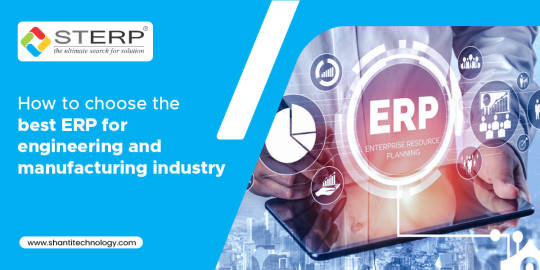
Why ERP is Crucial for Engineering and Manufacturing
ERP software integrates various business processes, including production, inventory management, supply chain, finance, and human resources. For engineering and manufacturing companies, ERP solutions are particularly vital because they:
Facilitate real-time data sharing across departments.
Enhance supply chain management.
Optimize production planning and scheduling.
Ensure compliance with industry standards.
Reduce operational costs.
Partnering with the right Engineering ERP software company ensures that your organization leverages these benefits to stay competitive in a dynamic market.
Steps to Choose the Best ERP for Engineering and Manufacturing
1. Understand Your Business Needs
Before exploring ERP solutions, evaluate your company’s specific requirements. Identify the pain points in your current processes and prioritize the features you need in an ERP system. Common features for engineering and manufacturing companies include:
Bill of Materials (BOM) management
Production planning and scheduling
Inventory control
Quality management
Financial reporting
Consulting with a reputed ERP software company can help you match your needs with the right features.
2. Look for Industry-Specific Solutions
Generic ERP software might not address the unique needs of the engineering and manufacturing sector. Opt for an ERP software in India that offers modules tailored to your industry. Such solutions are designed to handle specific challenges like multi-level BOM, project costing, and shop floor management.
3. Check Vendor Expertise
Choosing a reliable vendor is as important as selecting the software itself. Research ERP solution providers with a strong track record in serving engineering and manufacturing companies. Look for reviews, case studies, and client testimonials to gauge their expertise.
4. Evaluate Scalability and Flexibility
Your business will grow, and so will your operational requirements. Ensure that the ERP system you choose is scalable and flexible enough to accommodate future needs. The top 10 ERP software providers in India offer scalable solutions that can adapt to changing business demands.
5. Assess Integration Capabilities
An ERP system must integrate seamlessly with your existing tools, such as Computer-Aided Design (CAD) software, Customer Relationship Management (CRM) systems, and IoT devices. A well-integrated system reduces redundancies and enhances efficiency.
6. Prioritize User-Friendliness
A complex system with a steep learning curve can hinder adoption. Choose an ERP software with an intuitive interface and easy navigation. This ensures that your employees can use the system effectively without extensive training.
7. Consider Customization Options
No two businesses are alike. While standard ERP solutions offer core functionalities, some companies require customization to align with specific workflows. A trusted ERP software company in India can provide custom modules tailored to your unique needs.
8. Focus on Data Security
Engineering and manufacturing companies often deal with sensitive data. Ensure that the ERP solution complies with the latest security standards and offers robust data protection features.
9. Compare Pricing and ROI
While cost is an important factor, it should not be the sole criterion. Evaluate the long-term return on investment (ROI) offered by different ERP software. A slightly expensive but feature-rich solution from the best ERP software provider in India may deliver better value than a cheaper alternative with limited functionalities.
10. Test Before You Commit
Most ERP software companies offer free trials or demo versions. Use these opportunities to test the software in a real-world scenario. Gather feedback from your team and ensure the solution meets your expectations before finalizing your decision.
Benefits of Partnering with the Best ERP Software Providers in India
India is home to some of the leading ERP software providers in India, offering state-of-the-art solutions for the engineering and manufacturing sector. Partnering with a reputable provider ensures:
Access to advanced features tailored to your industry.
Reliable customer support.
Comprehensive training and implementation services.
Regular updates and enhancements to the software.
Companies like Shantitechnology (STERP) specialize in delivering cutting-edge ERP solutions that cater specifically to engineering and manufacturing businesses. With years of expertise, they rank among the top 10 ERP software providers in India, ensuring seamless integration and exceptional performance.
Conclusion
Selecting the right ERP software is a critical decision that can impact your company’s efficiency, productivity, and profitability. By understanding your requirements, researching vendors, and prioritizing features like scalability, integration, and security, you can find the perfect ERP solution for your engineering or manufacturing business.
If you are looking for a trusted ERP software company in India, consider partnering with a provider like STERP. As one of the best ERP software providers in India, STERP offers comprehensive solutions tailored to the unique needs of engineering and manufacturing companies. With their expertise, you can streamline your operations, improve decision-making, and stay ahead in a competitive market.
Get in touch with STERP – the leading Engineering ERP software company – to transform your business with a reliable and efficient ERP system. Take the first step toward a smarter, more connected future today!
#Manufacturing ERP software company#ERP solution provider#Engineering ERP software company#ERP software company#ERP software companies
6 notes
·
View notes
Text
How-To IT
Topic: Core areas of IT
1. Hardware
• Computers (Desktops, Laptops, Workstations)
• Servers and Data Centers
• Networking Devices (Routers, Switches, Modems)
• Storage Devices (HDDs, SSDs, NAS)
• Peripheral Devices (Printers, Scanners, Monitors)
2. Software
• Operating Systems (Windows, Linux, macOS)
• Application Software (Office Suites, ERP, CRM)
• Development Software (IDEs, Code Libraries, APIs)
• Middleware (Integration Tools)
• Security Software (Antivirus, Firewalls, SIEM)
3. Networking and Telecommunications
• LAN/WAN Infrastructure
• Wireless Networking (Wi-Fi, 5G)
• VPNs (Virtual Private Networks)
• Communication Systems (VoIP, Email Servers)
• Internet Services
4. Data Management
• Databases (SQL, NoSQL)
• Data Warehousing
• Big Data Technologies (Hadoop, Spark)
• Backup and Recovery Systems
• Data Integration Tools
5. Cybersecurity
• Network Security
• Endpoint Protection
• Identity and Access Management (IAM)
• Threat Detection and Incident Response
• Encryption and Data Privacy
6. Software Development
• Front-End Development (UI/UX Design)
• Back-End Development
• DevOps and CI/CD Pipelines
• Mobile App Development
• Cloud-Native Development
7. Cloud Computing
• Infrastructure as a Service (IaaS)
• Platform as a Service (PaaS)
• Software as a Service (SaaS)
• Serverless Computing
• Cloud Storage and Management
8. IT Support and Services
• Help Desk Support
• IT Service Management (ITSM)
• System Administration
• Hardware and Software Troubleshooting
• End-User Training
9. Artificial Intelligence and Machine Learning
• AI Algorithms and Frameworks
• Natural Language Processing (NLP)
• Computer Vision
• Robotics
• Predictive Analytics
10. Business Intelligence and Analytics
• Reporting Tools (Tableau, Power BI)
• Data Visualization
• Business Analytics Platforms
• Predictive Modeling
11. Internet of Things (IoT)
• IoT Devices and Sensors
• IoT Platforms
• Edge Computing
• Smart Systems (Homes, Cities, Vehicles)
12. Enterprise Systems
• Enterprise Resource Planning (ERP)
• Customer Relationship Management (CRM)
• Human Resource Management Systems (HRMS)
• Supply Chain Management Systems
13. IT Governance and Compliance
• ITIL (Information Technology Infrastructure Library)
• COBIT (Control Objectives for Information Technologies)
• ISO/IEC Standards
• Regulatory Compliance (GDPR, HIPAA, SOX)
14. Emerging Technologies
• Blockchain
• Quantum Computing
• Augmented Reality (AR) and Virtual Reality (VR)
• 3D Printing
• Digital Twins
15. IT Project Management
• Agile, Scrum, and Kanban
• Waterfall Methodology
• Resource Allocation
• Risk Management
16. IT Infrastructure
• Data Centers
• Virtualization (VMware, Hyper-V)
• Disaster Recovery Planning
• Load Balancing
17. IT Education and Certifications
• Vendor Certifications (Microsoft, Cisco, AWS)
• Training and Development Programs
• Online Learning Platforms
18. IT Operations and Monitoring
• Performance Monitoring (APM, Network Monitoring)
• IT Asset Management
• Event and Incident Management
19. Software Testing
• Manual Testing: Human testers evaluate software by executing test cases without using automation tools.
• Automated Testing: Use of testing tools (e.g., Selenium, JUnit) to run automated scripts and check software behavior.
• Functional Testing: Validating that the software performs its intended functions.
• Non-Functional Testing: Assessing non-functional aspects such as performance, usability, and security.
• Unit Testing: Testing individual components or units of code for correctness.
• Integration Testing: Ensuring that different modules or systems work together as expected.
• System Testing: Verifying the complete software system’s behavior against requirements.
• Acceptance Testing: Conducting tests to confirm that the software meets business requirements (including UAT - User Acceptance Testing).
• Regression Testing: Ensuring that new changes or features do not negatively affect existing functionalities.
• Performance Testing: Testing software performance under various conditions (load, stress, scalability).
• Security Testing: Identifying vulnerabilities and assessing the software’s ability to protect data.
• Compatibility Testing: Ensuring the software works on different operating systems, browsers, or devices.
• Continuous Testing: Integrating testing into the development lifecycle to provide quick feedback and minimize bugs.
• Test Automation Frameworks: Tools and structures used to automate testing processes (e.g., TestNG, Appium).
19. VoIP (Voice over IP)
VoIP Protocols & Standards
• SIP (Session Initiation Protocol)
• H.323
• RTP (Real-Time Transport Protocol)
• MGCP (Media Gateway Control Protocol)
VoIP Hardware
• IP Phones (Desk Phones, Mobile Clients)
• VoIP Gateways
• Analog Telephone Adapters (ATAs)
• VoIP Servers
• Network Switches/ Routers for VoIP
VoIP Software
• Softphones (e.g., Zoiper, X-Lite)
• PBX (Private Branch Exchange) Systems
• VoIP Management Software
• Call Center Solutions (e.g., Asterisk, 3CX)
VoIP Network Infrastructure
• Quality of Service (QoS) Configuration
• VPNs (Virtual Private Networks) for VoIP
• VoIP Traffic Shaping & Bandwidth Management
• Firewall and Security Configurations for VoIP
• Network Monitoring & Optimization Tools
VoIP Security
• Encryption (SRTP, TLS)
• Authentication and Authorization
• Firewall & Intrusion Detection Systems
• VoIP Fraud DetectionVoIP Providers
• Hosted VoIP Services (e.g., RingCentral, Vonage)
• SIP Trunking Providers
• PBX Hosting & Managed Services
VoIP Quality and Testing
• Call Quality Monitoring
• Latency, Jitter, and Packet Loss Testing
• VoIP Performance Metrics and Reporting Tools
• User Acceptance Testing (UAT) for VoIP Systems
Integration with Other Systems
• CRM Integration (e.g., Salesforce with VoIP)
• Unified Communications (UC) Solutions
• Contact Center Integration
• Email, Chat, and Video Communication Integration
2 notes
·
View notes
Text
Best Business Software Tools in 2024
The right software tools can help increase productivity, draft operations more efficiently and promote company growth in today's high-paced business environment. Whether you are a start-up or an existing enterprise the following business software is necessary to improve different areas of your business.
1. Project Management: ClickUp

It is a feature-laden project manager that lets you handle tasks, projects, and workflows of all types. Its ease of use and user-friendly interface, complimented with diverse dashboards cater to audiences between small teams and large organizations. Task assignments, time tracking, goal setting, and collaboration options allow you to stop hopping between spreadsheets and emails so your projects are complete efficiently.
2. CRM–– Zoho CRM
Zoho CRM — Your Intelligent Customer Relationships Management System. Among other features, it has lead management, sales automation, and analytics to make sales performance improve on a consistent streamline both administrative aspect as well as customer satisfaction. Due to its integration capabilities with other Zoho products, as well as most third-party applications, It has become a flexible option for businesses that are ready to supercharge their customer relationship management.
3. Accounting: Zoho Books

Zoho Books- The Best Accounting Software for Business Owners Invoicing, expense tracking and financial reporting are some of its features. You can also rest assured that your taxes are being handled correctly and always have the latest view of your financial health to help you manage your finances better.
4. HR Management: monday. com HR
It is a complete human resources management software that helps companies to better structure their workforce. This system provides with facilities like employee on boarding, performance tracking, payroll management etc. With the platform's ease of use, UI simplicity, and automation capabilities in HR processes that would otherwise take hours away from key HR initiatives.
5. Payroll: OnPay

OnPay is an excellent payroll software for businesses of all sizes. It is a cloud payroll software for businesses that ensures complete compliance and automation of top-class payroll calculations, tax filings & employee payments. Additionally, OnPay provides HR and benefits management tools, effectively providing a full-fledged employee pay management solution.
6. Point-of-Sale (POS): eHopper
Versatile Point of Sale Software for Businesses Up To Mid-Sized It offers services like Inventory management, sales tracking and customer management. This makes eHopper a perfect choice for businesses that intend to simplify their sales operations using an affordable and intuitive POS system.
7. Inventory Management: Cin7

While there are plenty of other inventory management systems available, Cin7 stands out as one of the most popular options for small to mid-size businesses (SMBs) looking to get their stock levels, orders and supply chain operations under control. These functionalities consist of real-time inventory monitoring, order processing and e-commerce platform integration. With the powerful feature set of Cin7, businesses can keep inventory at an optimal level and fulfill customer demands to the hilt.
8. Website Builder: Weebly
Weebly is the website builder that you can also use to build your site or blog. It has lots of customizable templates, drag-and-drop functionality, and e-commerce ready to go. With Weebly, you can create a professional website even if you are a tech noob and give your business the relevant online visibility it needs.
9. Recruiting: ZipRecruiter

ZipRecruiter: Popular rated job search app for businesses on board. They provide hiring solutions through features like job posting candidates filtering and tracking the application. AI-powered matching from ZipRecruiter surfaces more relevant candidates to businesses faster.
10. VPN: NordVPN
It is a secure, encrypted VPN application that will make sure that you and your business stay safe as you work with the web. It provides features of encrypted connections, threat protection and global server access as well. In this way, It guarantees secure data in companies and privacy on internet.
Conclusion
The business software tools a company uses are very important to increase productivity and power growth. The above-mentioned tools are some of the best & flexible according to the fact which can assist businesses for any sized groups and help them attain their desired objectives. Implementing these tools in your operations can also help speed up processes and lead to higher customer satisfaction, as well as allow you to be on top of the competition.
#business#business growth#innovation#startup#entrepreneur#100 days of productivity#project management#sales#payroll#hr management#hr software#hr services#ai#artificial intelligence#technology#tech#techinnovation
3 notes
·
View notes
Text
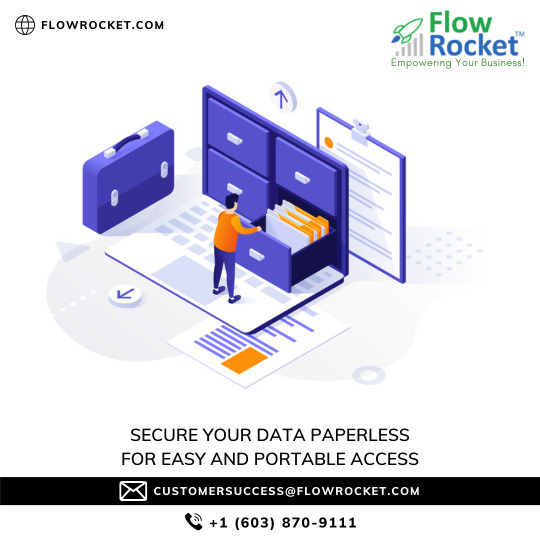
https://flowrocket.com/people-culture
0 notes
Text
#technology#Enterprise Resource Planning (ERP)#ERP Solutions#Business Management Software#Integrated Business Applications#Supply Chain Management#Customer Relationship Management (CRM)#Financial Management Systems#Human Resources Management#Inventory Management Software#Manufacturing Resource Planning#Cloud ERP Solutions#On-Premise ERP Systems#ERP Implementation Services#ERP Consulting#ERP Software for Small Business#ERP Software for Manufacturing#ERP System Integration#ERP Software Development#ERP Customization Services#ERP Training and Support#technews#techcore
0 notes
Text
Las empresas y el software
Hoy en dia mayor parte de las empresas usan aplicaciones de software para el manejo de las mismaspara asi facilitar las tareas o distintos tipos de actividades que una persona puede hacer pero este puede ser mas rapido, eficaz e instanteno
Software de gestión
El software de gestión, también conocido como software empresarial o ERP (Enterprise Resource Planning), es un programa informático diseñado para simplificar y automatizar los procesos de gestión de una empresa. Su objetivo principal es mejorar la eficiencia y la productividad de las organizaciones, centralizando la información y facilitando la toma de decisiones. Funciones del Software de Gestión:
Funciones
Gestión financiera: contabilidad, facturación, tesorería, control de costes.
Gestión comercial: ventas, CRM (Customer Relationship Management), marketing.
Gestión de producción: planificación, control de materiales, gestión de stocks.
Gestión de proyectos: planificación, seguimiento, control de costes.
Recursos humanos: gestión de personal, nóminas, formación.
Inventario: control de stocks, gestión de almacenes.
Compras: gestión de proveedores, pedidos, recepción de mercancías.
Tipos de Software de Gestión:
Tipos
ERP (Enterprise Resource Planning): software integral que abarca todas las áreas de la empresa.
CRM (Customer Relationship Management): software para la gestión de las relaciones con los clientes.
SCM (Supply Chain Management): software para la gestión de la cadena de suministro.
HRM (Human Resource Management): software para la gestión de los recursos humanos.
MRP (Material Requirements Planning): software para la planificación de las necesidades de materiales.
WMS (Warehouse Management System): software para la gestión de almacenes.
PMS (Project Management Software): software para la gestión de proyectos.
Ventajas
Mejora de la eficiencia: automatización de tareas, reducción de errores, optimización de procesos.
Aumento de la productividad: mejor aprovechamiento del tiempo, mayor capacidad de respuesta.
Mejora de la toma de decisiones: acceso a información en tiempo real, generación de informes y análisis.
Reducción de costes: disminución de los gastos administrativos, optimización de recursos.
Mejora de la comunicación y la colaboración: centralización de la información, mayor fluidez en la comunicación interna.
Mejora de la satisfacción del cliente: mejor atención al cliente, mayor rapidez en la respuesta a las solicitudes.
Mejora de la competitividad: mayor eficiencia, mejor capacidad de adaptación a los cambios del mercado.
Software de Gestión de Recursos Materiales y Financieros:
Definición:
El software de gestión de recursos materiales y financieros es una herramienta informática que ayuda a las empresas a optimizar la gestión de sus recursos:
Materiales: inventario, compras, almacenaje, producción.
Financieros: contabilidad, tesorería, inversiones, financiación.
Este software permite a las empresas controlar y optimizar el uso de sus recursos, lo que puede mejorar la eficiencia, la productividad y la rentabilidad del negocio.
Características:
Centralización de la información: toda la información sobre los recursos materiales y financieros de la empresa se encuentra en un único lugar, lo que facilita el acceso y la gestión.
Automatización de tareas: el software automatiza tareas repetitivas, como la gestión de pedidos, el control de stocks o la contabilidad, lo que libera tiempo para que los empleados se puedan dedicar a tareas más estratégicas.
Mejora de la toma de decisiones: el software proporciona información en tiempo real sobre los recursos de la empresa, lo que ayuda a los directivos a tomar mejores decisiones.
Reducción de costes: el software puede ayudar a reducir los costes de inventario, compras, producción y financieros.
Mejora de la eficiencia: el software puede ayudar a mejorar la eficiencia de los procesos de gestión de recursos.
Ejemplos:
SAP Business One: software ERP (Enterprise Resource Planning) que integra la gestión de todos los recursos de la empresa.
Microsoft Dynamics NAV: software ERP que ofrece una amplia gama de funcionalidades para la gestión de recursos.
Beneficios:
Mejora de la eficiencia: el software puede ayudar a mejorar la eficiencia de los procesos de gestión de recursos, lo que puede traducirse en una reducción de costes y un aumento de la productividad.
Mejora de la toma de decisiones: el software proporciona información en tiempo real sobre los recursos de la empresa, lo que ayuda a los directivos a tomar mejores decisiones.
Mejora del control: el software permite un mejor control de los recursos de la empresa, lo que puede ayudar a evitar pérdidas y fraudes.
Mejora de la comunicación: el software facilita la comunicación entre los diferentes departamentos de la empresa que están involucrados en la gestión de recursos.
Mejora de la satisfacción del cliente: el software puede ayudar a mejorar la satisfacción del cliente al mejorar la eficiencia de los procesos de gestión de pedidos y atención al cliente.
Software de capital humano:
Definición:
El software de capital humano, también conocido como HCM (Human Capital Management), es una herramienta informática que ayuda a las empresas a gestionar de forma eficiente el talento humano. Este software permite a las empresas automatizar tareas, centralizar la información y mejorar la toma de decisiones relacionadas con los empleados.
Características:
Gestión del ciclo de vida del empleado: desde la contratación hasta la jubilación, incluyendo la selección, onboarding, formación, evaluación del desempeño, gestión de la carrera profesional, etc.
Administración de personal: gestión de datos de los empleados, control de ausencias y vacaciones, nóminas, etc.
Desarrollo del talento: formación y desarrollo profesional, gestión del conocimiento, planes de carrera, etc.
Análisis de datos: generación de informes y análisis sobre la plantilla, la productividad, el absentismo, etc.
Comunicación interna: portal del empleado, comunicación interna, encuestas de satisfacción, etc.
Ejemplos:
Workday: software HCM líder en el mercado que ofrece una amplia gama de funcionalidades.
SAP SuccessFactors: suite de soluciones HCM que se integra con otros productos de SAP.
Beneficios:
Mejora de la eficiencia: el software puede ayudar a automatizar tareas repetitivas, como la gestión de nóminas o la evaluación del desempeño, lo que libera tiempo para que los empleados se puedan dedicar a tareas más estratégicas.
Mejora de la toma de decisiones: el software proporciona información en tiempo real sobre la plantilla, lo que ayuda a los directivos a tomar mejores decisiones sobre la gestión del talento humano.
Reducción de costes: el software puede ayudar a reducir los costes de administración de personal, reclutamiento y formación.
Mejora de la productividad: el software puede ayudar a mejorar la productividad de los empleados al proporcionarles las herramientas y la información que necesitan para realizar su trabajo de forma eficiente.
Mejora de la satisfacción del empleado: el software puede ayudar a mejorar la satisfacción del empleado al proporcionarles un mejor acceso a la información y a los recursos que necesitan.
Software para ventas y marketing
Definición:
El software para ventas y marketing, también conocido como CRM (Customer Relationship Management), es una herramienta informática que ayuda a las empresas a gestionar de forma eficiente las relaciones con sus clientes. Este software permite a las empresas centralizar la información, automatizar tareas y mejorar la toma de decisiones relacionadas con las ventas y el marketing.
Características:
Gestión de contactos: almacenamiento y gestión de la información de los clientes, incluyendo datos de contacto, historial de interacciones, preferencias, etc.
Oportunidades de ventas: seguimiento del proceso de ventas, desde la prospección hasta el cierre, incluyendo la gestión de leads, la calificación de oportunidades, la elaboración de propuestas, etc.
Marketing automation: automatización de tareas de marketing, como el envío de correos electrónicos, la creación de landing pages, la gestión de campañas, etc.
Análisis de datos: generación de informes y análisis sobre las ventas, el marketing y la satisfacción del cliente.
Atención al cliente: gestión de las interacciones con los clientes, incluyendo la resolución de incidencias, la gestión de quejas y sugerencias, etc.
Ejemplos:
Salesforce: CRM líder en el mercado que ofrece una amplia gama de funcionalidades.
HubSpot: CRM gratuito que ofrece una suite de herramientas para marketing, ventas y atención al cliente.
Beneficios:
Mejora de la eficiencia: el software puede ayudar a automatizar tareas repetitivas, como la gestión de leads o el envío de correos electrónicos, lo que libera tiempo para que los empleados se puedan dedicar a tareas más estratégicas.
Mejora de la toma de decisiones: el software proporciona información en tiempo real sobre los clientes, lo que ayuda a los directivos a tomar mejores decisiones sobre las estrategias de ventas y marketing.
Aumento de las ventas: el software puede ayudar a aumentar las ventas al mejorar la gestión de las relaciones con los clientes, la calificación de leads y el seguimiento del proceso de ventas.
Mejora de la satisfacción del cliente: el software puede ayudar a mejorar la satisfacción del cliente al proporcionarles un mejor servicio y atención.
Reducción de costes: el software puede ayudar a reducir los costes de marketing y ventas al optimizar las campañas y mejorar la eficiencia de los procesos.
Bien pues para poder conclui este tema que es muy interesante por que antes no existian este tipo de oportunidades para facilitar el trabajo. Pero es muy importante en estos dias que las empresas hagan uso de aplicaciones o software para poder asi un trabajo mas eficaz o mas rapido. Al igual existen empresas que no hacen tanto uso del las tecnologias en si pero con forme pasa el tiempo es necesario adaptarse a los tiempo para asi poder ir evolucionando junto con todo el mundo
Bibliografias:
https://geekflare.com/es/resource-management-software/
https://geekflare.com/es/best-financial-management-software/https://www.salesforce.com/es/
"Software de gestión del capital humano" by José Luis García Martín
"Software de gestión para ventas y marketing" by Enrique Ortega Egea
4 notes
·
View notes
Text
The Rise Of AI in Digital Market: How Artificial Intelligence is Transforming the Industry
In the world of Digital Marketing Services, AI has emerged as a significant game-changer, influencing every aspect of the market and its components. Whether it's optimizing simple email campaigns or developing complex software, AI is a transformative force. This technology plays a crucial role in reshaping the digital marketing landscape, and businesses need to harness its power to stay competitive and effective in reaching their target audience. Explore how AI is shaping the future of digital marketing and discover the many advantages it offers.
Content Categorization and Generation:
AI carries great potential to select and generate optimal content and it makes it easier for businesses to comprehend target audiences and create personalized content for them according to their taste.
AI has the ability to categorize users and their and their preferences according to their demographic, lingual identity and by their recent activities too for instance people in north india. Get suggestions in their local language and people with English speaking reasons get advertisements in english and a guy recently moved to another city automatically gets suggestions with offers about better stay and dining options in his nearby place.
Concentrated Digital Advertising:
AI makes it smooth for businesses to get a clearer insight about the expectations, needs and behavioral patterns of their target customers. AI can easily understand the nature of consumers and how they can be influenced.
Without technology businesses had very limited and outdated ways to reach out to customers like dore to dore marketing by utmost human efforts, but with the help of AI we can get the closest idea to reach out to if a person uses instagram he will get the information about product or services there if he watch videos he can get to know about it there and like that we have numerous options to catch potential buyers with the simple help of AI tools.
Bettering Customer Relationship Management:
With the help of access to a huge data set that contains user’s preferences, feedback and other records, AI gets the edge in terms of pleasing customers by offering them what they want. With the help of that business get an idea of what they have to offer very easily.
This can also help someone who wants to expand their business in a certain area or in a certain group of people, better CRM can give them genuine insight about the quantity of potential buyers with their preferences and expectations.
By Reducing Cost and Time Complexity:
With the assistance of AI, we can significantly reduce workforce costs from over 1000 employees to just one, and in certain areas, we can effectively eliminate the need for human resources altogether.
Organizations had to put tones of effort to conduct survey and make strategy accordingly and testing their feasibility, this all process drains time and effort and by inclusion of human factor risk of getting anomalies is also a factor, but with the help of AI all of this effort and time cut very optimal extent and that is the measure positive of it.
This advancement of technology makes many complex jobs very smooth like understanding customers' expectations and their behavior but there's one thing that we have to always keep in mind that AI comes with a disclaimer that it upgrades and improves its operation day by day so if we want to reap all the benefits from it we too should improve our concepts about AI and its modus operandi.
Conclusion
The advent of AI in digital marketing guarantees a lot of benefits but indicates that after all of this advancement digital marketing services won with the assistance of AI, we can significantly reduce workforce costs from over 1000 employees to just one, and in certain areas, we can effectively eliminate the need for human resources altogether, and it showing us glimpses that the future of digital marketing with inclusion of AI will not be this inexpensive anymore.
#Best Digital Marketing Company#Digital Marketing Company In India#Digital Marketing Services#Digital Marketing Agency#SEO Services#Best Social media marketing company in pune#Social Media Marketing Services#Best Social Media Marketing Agency#Best Digital Marketing Company in Pune#ai intelligence
2 notes
·
View notes
Text
Streamlining Your Operations: How Software Solutions Can Boost Business Efficiency
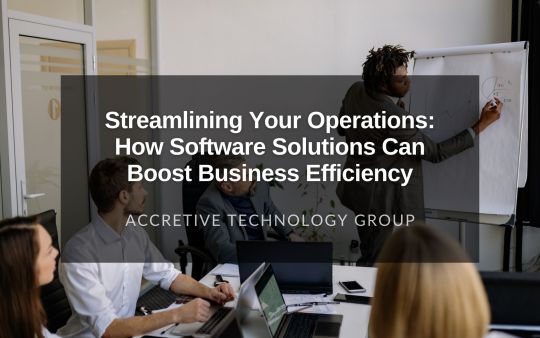
Improving efficiency is crucial for companies to stay competitive and achieve success. One way businesses can enhance their efficiency is by leveraging software solutions. Specifically, project management software, accounting and financial management software, customer relationship management (CRM) software, and human resources management (HRM) software are instrumental in streamlining operations. In this blog post, we will explore how these software solutions can help businesses improve their efficiency and drive success.
Project Management Software:
Efficient project management is crucial for completing tasks on time and within budget. Project management software offers a centralized platform for planning, scheduling, and collaboration. It allows businesses to break down projects into tasks, assign responsibilities, and track progress in real-time. By providing visibility into project timelines and resource allocation, businesses can optimize workflows, identify bottlenecks, and allocate resources effectively. Moreover, features like task dependencies, document sharing, and automated notifications enhance communication and collaboration, minimizing delays and ensuring smooth project execution.
Accounting and Financial Management Software:
Financial management is the backbone of any business. Accounting and financial management software streamline financial processes, such as invoicing, expense tracking, and budgeting. Automating these tasks minimizes human error, saves time, and improves accuracy. Additionally, these software solutions provide real-time insights into financial data, enabling businesses to make informed decisions promptly. With features like automated report generation, tax compliance, and integration with banking systems, businesses can optimize financial operations, reduce costs, and improve cash flow management.
Customer Relationship Management (CRM) Software:
Customers are the lifeblood of any business, making CRM software essential for efficient customer management. CRM software consolidates customer data, interactions, and communication history in a centralized database. This enables businesses to gain a comprehensive view of their customers, personalize interactions, and provide better customer service. By automating lead management, sales tracking, and customer support processes, businesses can streamline their operations, enhance customer satisfaction, and increase sales. Moreover, CRM software offers analytical tools to identify customer trends, preferences, and behavior, enabling businesses to tailor their strategies accordingly.
Human Resources Management (HRM) Software:
Efficiently managing human resources is crucial for organizational success. HRM software simplifies and automates various HR processes, including recruitment, employee onboarding, payroll, and performance management. By centralizing employee data, businesses can streamline administrative tasks, reduce paperwork, and enhance data accuracy. Additionally, HRM software offers self-service portals for employees, empowering them to access and update their information, request time off, and participate in performance evaluations. These features improve employee satisfaction, increase productivity, and enable HR teams to focus on strategic initiatives.
Leveraging software solutions is essential for businesses aiming to streamline their operations and boost efficiency. Project management software optimizes project execution, accounting and financial management software enhances financial processes, CRM software improves customer management, and HRM software streamlines HR operations. By adopting these software solutions, businesses can automate repetitive tasks, improve collaboration, gain real-time insights, and allocate resources effectively. Embracing software solutions not only saves time and reduces costs but also empowers businesses to focus on innovation and growth, ultimately driving long-term success.
2 notes
·
View notes
Text
Why SAP global certification is the Best program for career growth & global job opportunity?
What is SAP? SAP is System Application and Products in Data processing. Nowadays having a proper certification can significantly boost ones career and open doors for global job opportunities. One such leading programs is SAP which provides enterprise software solutions. SAP software is an European multinational company, they focus on providing software solutions for better understanding and management of business and their customers.
Some of the comprehensive courses provided by SAP are finance, logistics, human resources and many more. The course certification is acknowledged on global basis.
One of the key advantages of the SAP global certification program is its recognition worldwide. With over 400,000 customers in more than 180 countries using SAP solutions, there is a high demand for professionals with SAP skills across the globe .This opens up a plethora of job opportunities on a global scale.
Benefits of SAP courses
Streamlined Processes: SAP helps organizations streamline their business processes by automating tasks, eliminating the manual effort, and reducing inefficiencies.
Enhanced Decision-Making: the course provides robust data management and analytics capabilities, enabling organizations to access real-time, accurate information.
Improved Collaboration and Communication: It enables the seamless integration and data exchange between different functional areas, enhancing cross-functional collaboration and teamwork.
Increased Visibility and Control: SAP offers comprehensive visibility into organizational data, processes, and operations.
Scalability and Flexibility: SAP solutions are scalable and flexible, accommodating the changing needs and growth of organizations.
Enhanced Customer Experience: SAP's customer relationship management (CRM) solutions enable organizations to deliver a personalized and exceptional customer experience.
Improved Supply Chain Management: It enables organizations to improve demand planning, inventory management, procurement, and logistics, resulting in reduced costs, improved order fulfillment, and better customer satisfaction.
Compliance and Risk Management: It provides functionalities for governance, risk management, and compliance (GRC), helping organizations mitigate risks, ensure data security, and demonstrate compliance with legal and industry regulations.
Innovation and Digital Transformation: SAP embraces emerging technologies and drives innovation to support organizations in their digital transformation journey.
As multinational companies expand their operations across borders, they require professionals who can support and manage their SAP software system worldwide. This opens up many possibilities for career growth in international work experiences and also being an SAP certified professional it can also lead to higher earning potential, individuals with an SAP certificates tend to earn more as compared to their non-certified counterparts. This financial incentive further emphasizes the value of investing in an SAP global certification for career growth.
Job opportunities in SAP
SAP Consultant: SAP consultants provide expertise and guidance on implementing, configuring, and customizing SAP solutions to meet the specific needs of organizations
SAP Functional Analyst: SAP functional analysts focus on understanding business requirements and translating them into functional specifications for SAP solutions.
SAP Technical Developer: They are responsible for developing, customizing, and maintaining SAP applications.
SAP Project Manager: SAP project managers oversee the planning, execution, and delivery of SAP implementation or upgrade projects
SAP Administrator: SAP Basis administrators manage the technical infrastructure of SAP systems. They are responsible for system installation, configuration, monitoring, performance optimization, and security management of SAP landscapes
SAP Data Analyst: SAP data analysts focus on managing and analyzing data within SAP systems. They extract and manipulate data, perform data validation, create reports and dashboards.
SAP Supply Chain Consultant: SAP supply chain consultants work on projects related to supply chain management, procurement, inventory management, logistics, and production planning using SAP solutions.
Why is SAP global certification important?
SAP Global Certification is important as it validates an individual’s skills, acquires an industry recognition, provides a competitive advantage, strengthens career opportunities, opens up global job prospects, promotes continuous learning, and instills employer confidence. Thus considered a valuable investment for professionals seeking career growth in the field of SAP and for organizations looking to hire skilled SAP professionals.
#course#sap course#education#learning#career#student#careeropportunities#sap online training#productivity
2 notes
·
View notes
Text
Streamlining Manufacturing Operations with Production ERP Software
In the rapidly evolving world of manufacturing, small and medium enterprises (SMEs) face growing competition, shifting customer demands, and the need for seamless operations. Engineering manufacturing companies, in particular, must juggle a multitude of processes, including production planning, inventory management, and regulatory compliance. As a result, more and more businesses are recognizing the importance of adopting advanced technological solutions to remain competitive. This is where ERP (Enterprise Resource Planning) software becomes essential.
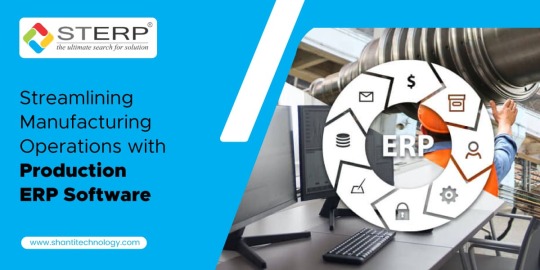
ERP software streamlines and integrates core business processes, enabling better decision-making, enhanced efficiency, and improved profitability. For engineering and manufacturing SMEs in India, finding the right ERP solution is critical to long-term success.
In this blog, we will explore why ERP software is a necessity for small and medium-sized engineering manufacturing companies and how choosing the right solution can significantly impact their operations. We will also highlight some of the top providers of manufacturing ERP software in India and discuss the key factors to consider when selecting the best ERP software for your business.
Why SMEs Need ERP Software in Manufacturing
Engineering and manufacturing businesses operate in complex environments where efficiency, precision, and cost-effectiveness are paramount. Managing resources, ensuring timely production, maintaining product quality, and adhering to industry regulations are all crucial components of the business. An ERP system integrates all these processes into a unified platform, enabling businesses to operate more smoothly and efficiently.
ERP software for manufacturing companies in India is designed to streamline various aspects of business operations, including supply chain management, production scheduling, finance, procurement, inventory control, and customer relationship management (CRM). By providing real-time data and insights, ERP software enables companies to optimize operations, reduce costs, and improve customer satisfaction.
The benefits of ERP systems for engineering and manufacturing companies include:
Improved Efficiency: ERP software automates manual processes, reducing human error and increasing overall operational efficiency.
Cost Savings: Optimized resource management, reduced wastage, and better production planning help reduce operating costs.
Better Decision-Making: Real-time data from various departments allows for more informed and timely decisions.
Enhanced Collaboration: ERP software integrates different departments, promoting better communication and collaboration across the organization.
Scalability: ERP systems are designed to scale as your business grows, making them ideal for SMEs looking to expand in the future.
Features of the Best ERP Software for Manufacturing Companies
Not all ERP software is the same, and engineering manufacturing companies have specific needs that must be addressed. To select the right solution, businesses should consider the key features of manufacturing ERP software in India.
Production Management: This is a core feature of any manufacturing ERP system, allowing businesses to plan and schedule production processes effectively. It includes functions such as job scheduling, capacity planning, and work order management.
Inventory Management: Efficient inventory control is essential in manufacturing. ERP systems help manage inventory levels, track materials, and ensure that stock levels meet demand without causing overstocking or stockouts.
Supply Chain Management: Manufacturing companies often rely on complex supply chains to ensure timely procurement and delivery of materials. The best ERP for manufacturing industry will have robust supply chain management capabilities, including vendor management, procurement, and logistics tracking.
Quality Control: Ensuring product quality is critical in manufacturing. ERP systems help enforce quality checks at different stages of production, ensuring products meet industry standards and regulatory requirements.
Financial Management: An integrated ERP system enables businesses to manage accounting, budgeting, and financial reporting more efficiently. This ensures better visibility into cash flow, profit margins, and overall financial health.
CRM Integration: Managing customer relationships is crucial for manufacturing companies. ERP software integrates CRM functions to manage leads, track customer interactions, and improve customer satisfaction.
Compliance and Reporting: Compliance with industry standards and regulations is critical in engineering and manufacturing. The best ERP software for manufacturing companies in India includes features that help businesses stay compliant and generate necessary reports for regulatory authorities.
How to Choose the Best ERP for Manufacturing Industry
Selecting the best ERP for your engineering manufacturing business is a critical decision that can significantly impact your operations. Here are some key factors to consider when evaluating ERP solutions:
Customization: Every manufacturing business is unique, and ERP software should be customizable to meet specific business needs. The best ERP software provider in India will offer solutions that can be tailored to your company’s requirements.
Ease of Use: The usability of ERP software is crucial, especially for small and medium-sized businesses. A system that is easy to use and requires minimal training will ensure that employees can adopt the software quickly.
Scalability: Your ERP system should be able to grow with your business. As your company expands, the system should be able to handle additional users, processes, and data without compromising performance.
Integration: ERP software should integrate seamlessly with other systems and tools that your business uses, such as CAD software, financial systems, and supply chain management tools.
Vendor Support: Choose an ERP provider that offers ongoing support, training, and updates. This ensures that your business can continue to operate smoothly even as the software evolves.
Reputation: Consider the reputation of the ERP provider. Some of the top 10 ERP software providers in India are known for their reliability, customer support, and industry expertise. Researching these providers can help you identify the best ERP solution for your business.
Top ERP Software Providers in India
India has a growing number of ERP solution providers, catering to the specific needs of manufacturing companies. Some of the best ERP software providers in India offer solutions that are designed to meet the challenges faced by engineering manufacturing businesses. Here are some of the top 10 ERP software providers in India known for their expertise in the manufacturing industry:
SAP Business One: A global leader in ERP software, SAP offers a robust solution tailored for SMEs in the manufacturing sector. SAP Business One provides comprehensive tools for financial management, supply chain management, and production planning.
Oracle NetSuite: Oracle’s NetSuite ERP is a cloud-based solution that offers a suite of tools for manufacturing businesses, including inventory management, procurement, and financials. It is known for its scalability and ease of use.
TallyPrime: Tally is one of the most popular ERP solutions in India, especially among small businesses. TallyPrime offers inventory management, accounting, and compliance tools, making it a good option for SMEs.
Microsoft Dynamics 365: Microsoft’s ERP solution is designed to integrate seamlessly with other Microsoft products and offers a range of tools for financial management, production planning, and CRM.
STERP (Shanti Technology): Specializing in ERP software for the engineering and manufacturing industries, STERP provides customized solutions that cater to the specific needs of Indian businesses. Known as one of the best ERP software providers in India, STERP offers comprehensive ERP solutions tailored for SMEs.
Epicor ERP: Epicor is a global provider of manufacturing ERP software, offering a range of industry-specific solutions. Its software includes tools for production management, supply chain management, and quality control.
Infor CloudSuite Industrial (SyteLine): Infor’s CloudSuite Industrial is designed for manufacturing companies and offers a range of tools for managing production, supply chain, and finance.
Zoho ERP: Zoho provides a cloud-based ERP solution that is popular among small and medium-sized businesses in India. It offers tools for inventory management, accounting, and CRM.
Focus 9 ERP: Focus 9 is a comprehensive ERP solution designed for SMEs in the manufacturing sector. It offers tools for inventory control, production planning, and financial management.
Ramco ERP: Ramco offers cloud-based ERP software tailored for manufacturing businesses. It includes modules for production planning, quality control, and financial management.
Conclusion: Invest in the Best ERP for Manufacturing Success
For small and medium engineering manufacturing companies, investing in ERP software is crucial for optimizing operations, reducing costs, and staying competitive in a challenging market. With a wide range of ERP solutions available, businesses in India have access to some of the best ERP software providers in the world.
Choosing the right ERP for your business requires careful consideration of your specific needs, scalability requirements, and budget. By partnering with one of the top ERP software providers in India, such as STERP, SAP, or Oracle, you can ensure that your business is well-positioned for future growth and success.
#Best ERP software provider in India#Manufacturing ERP software in India#ERP for manufacturing company in India#Best ERP for manufacturing industry#Vadodara#Gujarat#Ahmedabad#Surat#Rajkot#Maharashtra#Mumbai#Pune#Bhopal#Indore#Madhyapradesh
4 notes
·
View notes